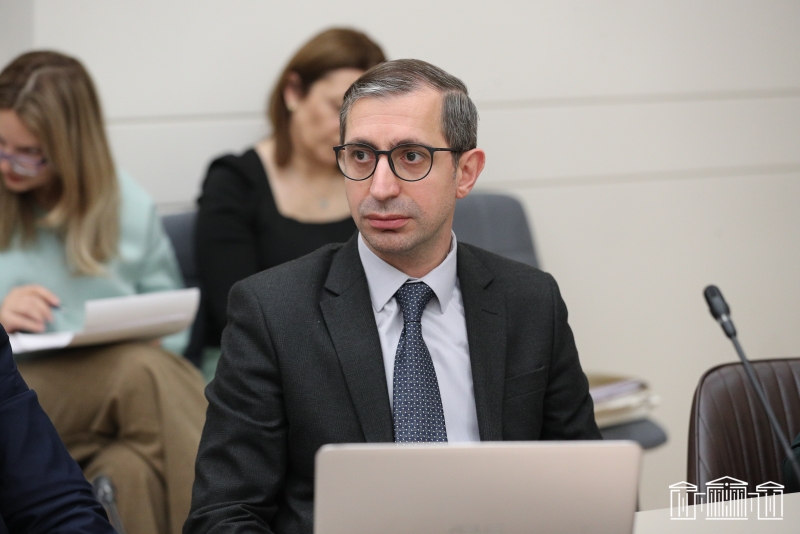The initiative is aimed at the introduction of the current study of the building integrity of the judges, the prosecutors, the persons holding autonomous position in the investigative bodies, as well as the structures of the building integrity study of the persons, who are subject to the advancement in the investigative and anti-corruption committees. On December 19, at the extraordinary sitting of the Standing Committee on State and Legal Affairs the RA Deputy Minister of Justice Karen Karapetyan said this, presenting the package of the drafts designing addenda and amendments to the Judicial Code and the related laws.
“In case of the judges it is proposed to carry out the current study of the building integrity once in four years, and in cases of remaining entities in three years regularly,” the rapporteur underlined. He added that regulations are set to complete the current study structures of the building integrity directed to initiating compulsory disciplinary proceedings towards the judges, the prosecutors, and the persons holding autonomous positions in the investigative bodies. Thus, the component of the discretion of the Disciplinary or Ethics Committees will be completely excluded.
As the Deputy Minister informed, the initiative was debated with the representatives of the concerned state bodies and civil society. According to Karen Karapetyan, the amendments will promote the improvement of the building integrity degree in the relevant state bodies and the increase of trust in the state system.
The Deputy Minister answered the deputies’ questions, noting that the current structures are expanded by the initiative.
Read also
The co-rapporteur, the member of the Committee Arpine Davoyan highlighted the proposing amendments by the package of drafts. According to her, the deputies’ concerns witness that it is necessary to improve the initiative from the first to the second reading.
Emphasizing the initiative, the Committee Chair Vladimir Vardanyan agreed with his colleagues’ observation that the Corruption Prevention Commission should have preventive role and will not become a club for this or that official. According to the MP, new powers ate again given by the initiative to the Corruption Prevention Commission, which the latter should realize, and we need time for that. “We should think to expand the number of the employees of the Corruption Prevention Commission,” the Committee Chair expressed such opinion. He proposed the attendees to organize additional debate on the initiative.
The debated initiative was endorsed in the first reading.
National Assembly of the Republic of Armenia






















































